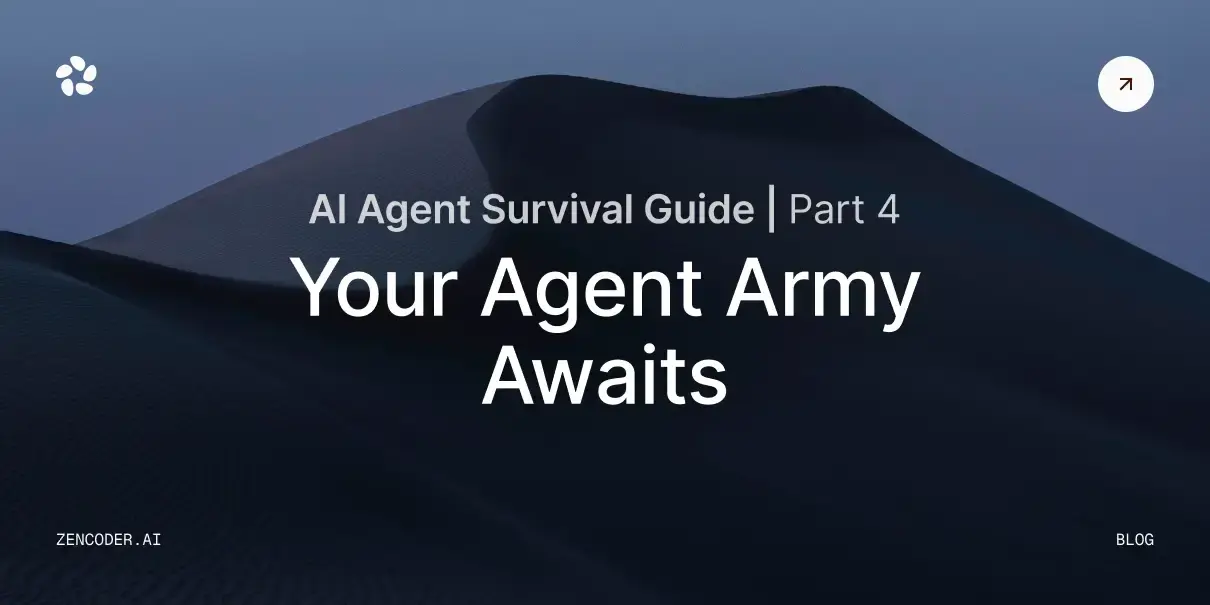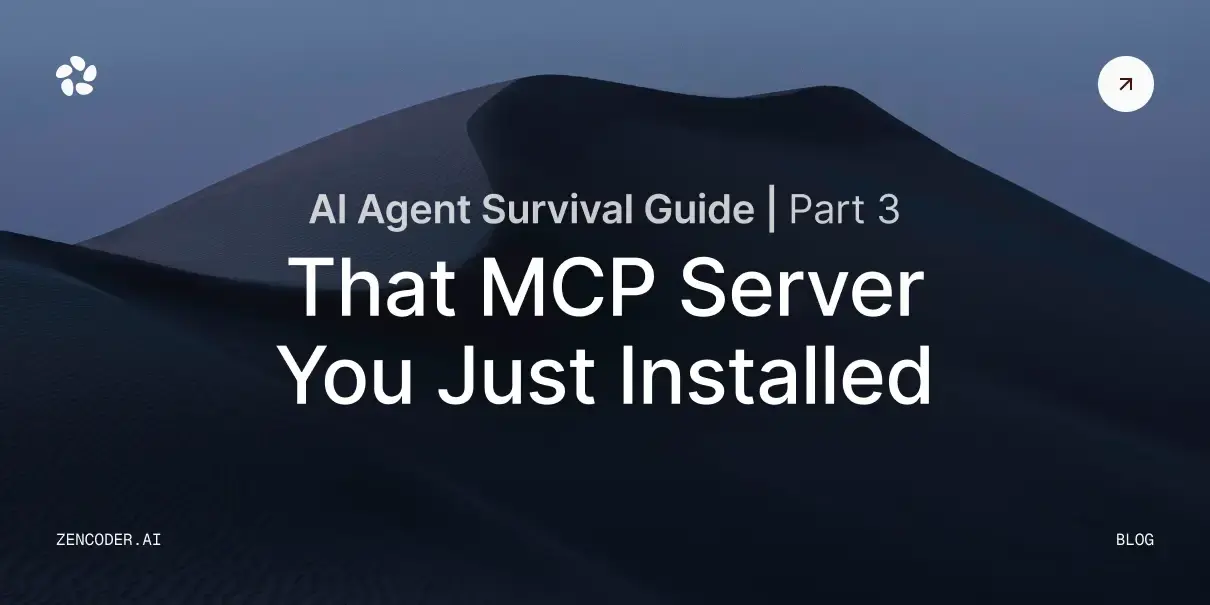In coding, errors are like uninvited guests—disruptive and annoying. Even top developers can't avoid them, leading to security issues and long debugging sessions. Enter AI: your savvy sidekick for catching mistakes early, enhancing code quality, and boosting productivity. AI is reshaping the development landscape, offering a smarter way to code, as explored in discussions about Zencoder's Next-Gen AI Agents for Engineering Without Limits.
Coding Errors: Bugs Lead to Headaches, Security Risks, and Wasted Development Time
Before we dive into how AI can help, let's take a moment to consider the impact of coding errors on the development process. Bugs are more than just minor inconveniences; they can have far-reaching consequences:
- Decreased productivity: Developers spend valuable time hunting down and fixing errors instead of writing new code or implementing features.
- Security vulnerabilities: Uncaught bugs can leave applications open to exploitation by malicious actors.
- Poor user experience: Errors that make it to production can frustrate users and damage a company's reputation and create a negative impact on your reputation score.
- Increased costs: The longer a bug goes undetected, the more expensive it becomes to fix.
- Technical debt: Accumulated errors and quick fixes can lead to a codebase that's difficult to maintain and expand.
With these challenges in mind, let's explore how AI is changing the game when it comes to catching and preventing coding errors.
Top 10 Coding Errors (and How AI Can Help)
1. Syntax Errors: The Silent Killers
Syntax errors, like missing semicolons or mismatched parentheses, are often simple mistakes that can cause major headaches. AI-powered code analysis tools, such as some of the 8 Best AI Code Checker Tools To Consider in 2025, can catch these errors in real-time, highlighting issues as you type. This immediate feedback allows developers to fix problems on the spot, preventing compilation errors and saving valuable time.
Example:
|
def greet(name) |
AI tool suggestion: "Add a colon (':') after the function parameter list to complete the function definition."
2. Logic Errors: Unraveling the Twisted Path
Logic errors occur when code doesn't behave as intended, even if it's syntactically correct. These can be particularly tricky to spot. AI tools analyze code flow and can identify potential logic errors by comparing your code to common patterns and best practices, often Demystifying SWE-Bench: AI Coding Assistants in Action to showcase their capabilities.
Example:
|
def calculate_discount(price, discount): |
AI tool suggestion: "The discount calculation appears to be adding instead of subtracting. Consider using 'price - (price * discount)' for a correct discount application."
3. Runtime Errors: Predicting the Unpredictable
Runtime errors, like division by zero or null pointer exceptions, can crash programs and frustrate users. AI-powered static analysis tools can simulate code execution and flag potential runtime errors before the code is even run. These tools are becoming increasingly sophisticated, helping to prevent issues that might otherwise only appear in production.
Example:
|
def divide_numbers(a, b): |
AI tool suggestion: "Consider adding a check for 'b == 0' to prevent a potential division by zero error."
4. Code Duplication: Breaking the Copy-Paste Cycle
Repetitive code is a common source of errors and maintenance headaches. AI can identify similar code blocks across your project and suggest refactoring opportunities to improve maintainability and reduce the risk of inconsistent updates. This is particularly useful when dealing with older codebases, a topic covered in AI-Driven Refactoring for Addressing Legacy System Challenges.
Example:
|
def process_data(data): |
AI tool suggestion: "Consider extracting the common data processing logic into a separate function to reduce duplication and improve maintainability."
5. Memory Leaks and Resource Mismanagement: Plugging the Holes
Memory leaks and improper resource handling can lead to performance issues and crashes. AI-powered tools can analyze code to detect potential resource leaks, suggesting proper cleanup and management techniques.
Example:
|
def read_file(filename): |
AI tool suggestion: "The file opened on line 2 is never closed. Consider using a 'with' statement or explicitly calling 'file.close()' to ensure proper resource management."
6. Security Vulnerabilities: Fortifying Your Code
Security issues like SQL injection or cross-site scripting (XSS) can have devastating consequences. AI-powered security scanners can identify potential vulnerabilities in your code and suggest secure coding practices. Example:
def get_user(username):
query = f"SELECT * FROM users WHERE username = '{username}'"
# Execute SQL query (vulnerable to SQL injection)
AI tool suggestion: "This code is vulnerable to SQL injection. Use parameterized queries or prepared statements to safely handle user input in database queries."
7. API Misuse: Mastering the Interface
Incorrect API usage can lead to unexpected behavior and hard-to-trace bugs. AI tools can analyze your code against known API specifications and best practices, flagging potential misuse and suggesting correct implementations.
Example:
|
import requests |
AI tool suggestion: "The 'json' attribute is a method, not a property. Use 'response.json()' to parse the JSON response."
8. Code Complexity: Simplifying the Labyrinth
Overly complex code is difficult to understand, maintain, and debug. AI-powered tools can analyze code complexity metrics and suggest simpler alternatives or refactoring opportunities to improve readability and reduce the likelihood of errors. This ties into broader efforts of Enhancing Codebase Navigation with AI-Driven Tools.
Example:
|
def is_prime(n): |
AI tool suggestion: "This one-liner is concise but may be difficult to read and maintain. Consider expanding it into a more explicit function with comments for improved readability."
9. Documentation Gaps: Filling in the Blanks
Poor or missing documentation can lead to misunderstandings and errors when other developers work with your code. AI can help by generating basic docstrings and suggesting areas where additional documentation would be beneficial.
Example:
|
def process_data(data, options): |
AI tool suggestion: "Add a docstring to explain the purpose of this function, describe the 'data' and 'options' parameters, and specify the return value."
10. Unclear Naming Conventions: Bringing Clarity to Chaos
Poorly named variables, functions, and classes can lead to confusion and errors. AI-powered tools can analyze your code and suggest clearer, more descriptive names based on common conventions and the context of your code.
Example:
|
def f(x, y): |
AI tool suggestion: "Consider renaming the function to 'calculate_product' and the parameters to 'multiplier' and 'multiplicand' for improved clarity."
AI as a Partner, Not a Replacement: AI Assists with Error Detection and Improves Code Quality
It's important to note that while AI is a powerful tool for catching and preventing coding errors, it's not meant to replace human developers. Instead, AI serves as an intelligent assistant, augmenting human skills and judgment, much like the vision behind tools like Zen Agents. Developers still need to review AI suggestions critically and make informed decisions about their code.
The real power of AI in coding lies in its ability to:
- Provide immediate feedback, catching errors as they're made.
- Analyze code from multiple perspectives simultaneously.
- Learn from vast amounts of code to identify patterns and best practices.
- Offer context-aware suggestions tailored to your specific project.
By leveraging AI tools, developers can focus more on creative problem-solving and less on tedious error-checking tasks.
Beyond the Top 10: Additional Benefits of AI in Coding
While we've covered the top 10 coding errors and how AI can help, the benefits of AI in software development extend far beyond error detection:
- Boosted Developer Productivity: With AI handling much of the error-checking process, developers can spend more time writing new code and implementing features. This shift in focus, supported by some of the 10 Best Generative AI Code Generation Tools to Consider in 2025, can lead to significant productivity gains across development teams.
- Early Error Detection: By catching errors early in the development process, AI tools help prevent bugs from making it into production. This early detection saves time, reduces costs, and improves overall software quality.
- Consistent Coding Standards: AI can help enforce coding standards across large teams and codebases, ensuring consistency and improving maintainability. This is particularly valuable for organizations aiming for robust AI for Code Governance: Ensuring Consistency and Compliance.
- Continuous Learning: As AI tools analyze more code and receive feedback from developers, they continually improve their ability to detect errors and provide helpful suggestions.
- Accessibility for New Developers: AI-powered coding assistants can help newer developers learn best practices and avoid common pitfalls, accelerating their learning curve and improving code quality across the board.
Conclusion: Embracing AI for Better Code and Happier Developers
As we've explored in this article, coding errors are a persistent challenge in software development. However, with the advent of AI-powered tools, developers now have a powerful ally in the fight against bugs, security vulnerabilities, and code quality issues.
By leveraging AI to catch syntax errors, identify logic flaws, prevent runtime issues, and improve overall code quality, developers can:
- Reduce the time spent on debugging and error correction.
- Improve the security and reliability of their applications.
- Enhance code maintainability and readability.
- Boost productivity and focus on creative problem-solving.
- Continuously improve their coding skills and practices.
As AI technology continues to evolve, we can expect even more sophisticated tools and techniques to emerge, further revolutionizing the software development process, with companies like Zencoder emerging as leaders, as shown by their performance on SWE-bench. By embracing AI as a partner in coding, developers can create better software, faster, and with fewer headaches along the way.
The future of coding is here, and it's powered by AI. Are you ready to leverage this game-changing technology in your development workflow?



